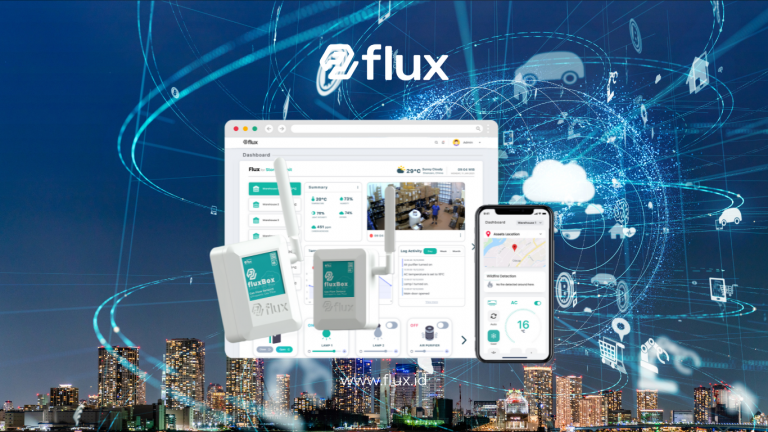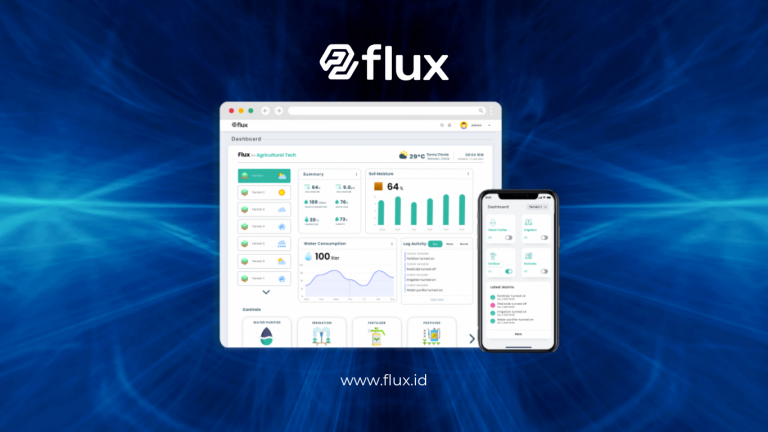Don't miss our holiday offer - 20% OFF!
The Industry 4.0 revolution has brought a significant shift in how businesses operate by integrating technologies like the Internet of Things (IoT). IoT serves as the main connector in a digital network that allows devices to connect, communicate, and exchange data without direct human intervention. IoT’s role in the Industry 4.0 Revolution not only enhances operational efficiency but also opens new innovation opportunities that were previously unimaginable.
Contents
What is Industry 4.0?

Read More: How Pressure Sensors Work: Basic Principles and Applications in Various Industries
Industry 4.0 is the latest phase in the industrial evolution driven by automation, big data, artificial intelligence (AI), and IoT. It is an era where machines, devices, and systems are interconnected via the internet to work synergistically in managing production, logistics, and services more efficiently and automatically. This transformation also enables real-time data-driven decision-making.
The Role of IoT in Industry 4.0
IoT is the backbone of Industry 4.0. By connecting devices, machines, and sensors to the internet, IoT enables real-time data collection and analysis. Some of IoT’s primary roles in Industry 4.0 include:
- Automation of Production Processes
IoT enables factory automation with sensors that monitor machines and equipment in real-time. Data generated by IoT devices is used to identify issues before breakdowns occur, optimizing machine performance. - Predictive Maintenance
One of the significant advantages of IoT is its ability to predict when a machine requires maintenance. IoT sensors can detect subtle changes in machine performance that may indicate an impending failure, allowing companies to perform maintenance before the machine actually breaks down, reducing downtime and maintenance costs. - Enhanced Logistics and Manufacturing Efficiency
In logistics, IoT enables real-time tracking of inventory, shipments, and vehicles. This data helps companies optimize delivery routes, reduce shipping times, and improve inventory management. In manufacturing, IoT assists in more efficient supply chain management. - Workplace Safety
IoT also plays a crucial role in improving workplace safety. Connected sensors can monitor environmental conditions, such as temperature, humidity, or air quality, as well as worker movements, enabling early detection of potential hazards and enhancing workplace safety.
Benefits of Implementing IoT in Industry

Read More: The Role of Pressure Sensors in Modern Industry: From Automotive to Energy Management
The use of IoT in the industrial sector offers numerous benefits beyond cost savings and productivity improvement. Other key benefits include:
- Real-Time Data for Better Decision-Making
Data generated by IoT devices can be accessed in real-time, providing deeper insights into company operations. With this data, decision-making becomes faster and more accurate, as companies can identify issues and trends immediately. - Operational Cost Savings
With automation and predictive maintenance, companies can significantly reduce operational costs. Optimally functioning machines not only reduce energy consumption but also extend equipment lifespan. - Improved Product Quality
IoT helps monitor product quality during the production process, allowing companies to detect and fix errors more quickly. This helps maintain product quality and reduces defect rates. - Increased Interdepartmental Collaboration
IoT creates a network that allows different departments within a company to collaborate more efficiently. For example, data generated by factory sensors can be used by planning and management departments to optimize production and sales processes.
Challenges in IoT Implementation

Read More: Security and Privacy in Connected Parking Systems: Challenges and Solutions
While there are many benefits, the adoption of IoT in industry also faces several challenges, including:
- Data Security
IoT operates by connecting various devices and systems to the internet, which can increase cybersecurity risks. Cyberattacks on IoT networks can have serious impacts on company operations, making data protection a priority. - High Initial Implementation Costs
Although IoT can generate long-term cost savings, the initial cost of setting up IoT infrastructure is high. Companies need to invest in sensors, hardware, software, and employee training. - Shortage of Skilled Workforce
IoT implementation requires skilled workers who can manage and analyze data generated by IoT devices. The shortage of experts in this field is a challenge for companies looking to adopt IoT. - Integration with Existing Systems
Integrating IoT technology with existing operational systems can be a technical challenge. Older systems may not be compatible with the latest IoT technologies, requiring updates or system replacements.
Case Study of IoT Implementation in Industry
Several major companies have successfully implemented IoT technology in their business processes, proving its effectiveness in improving efficiency and productivity. One example is General Electric (GE), which uses IoT to enhance predictive maintenance on its industrial machines. With sensors installed on machines worldwide, GE can monitor machine performance in real-time, extending machine life and reducing production downtime.
The Future of IoT in Industry 4.0
In the future, IoT is expected to become increasingly important in the Industry 4.0 revolution. This technology will continue to evolve with advancements in artificial intelligence and data analytics, allowing companies to make smarter and more automated decisions. IoT will also play a role in developing fully autonomous smart factories, where machines and devices communicate with each other without human intervention.
Conclusion
IoT plays a vital role in the Industry 4.0 revolution, driving digital transformation that is reshaping how businesses operate. With its ability to connect devices, gather data, and analyze it in real-time, IoT enhances operational efficiency, reduces costs, and unlocks new innovation opportunities. Despite the challenges, the benefits of IoT adoption far outweigh the hurdles, making it an irreplaceable technology in this digital era.





